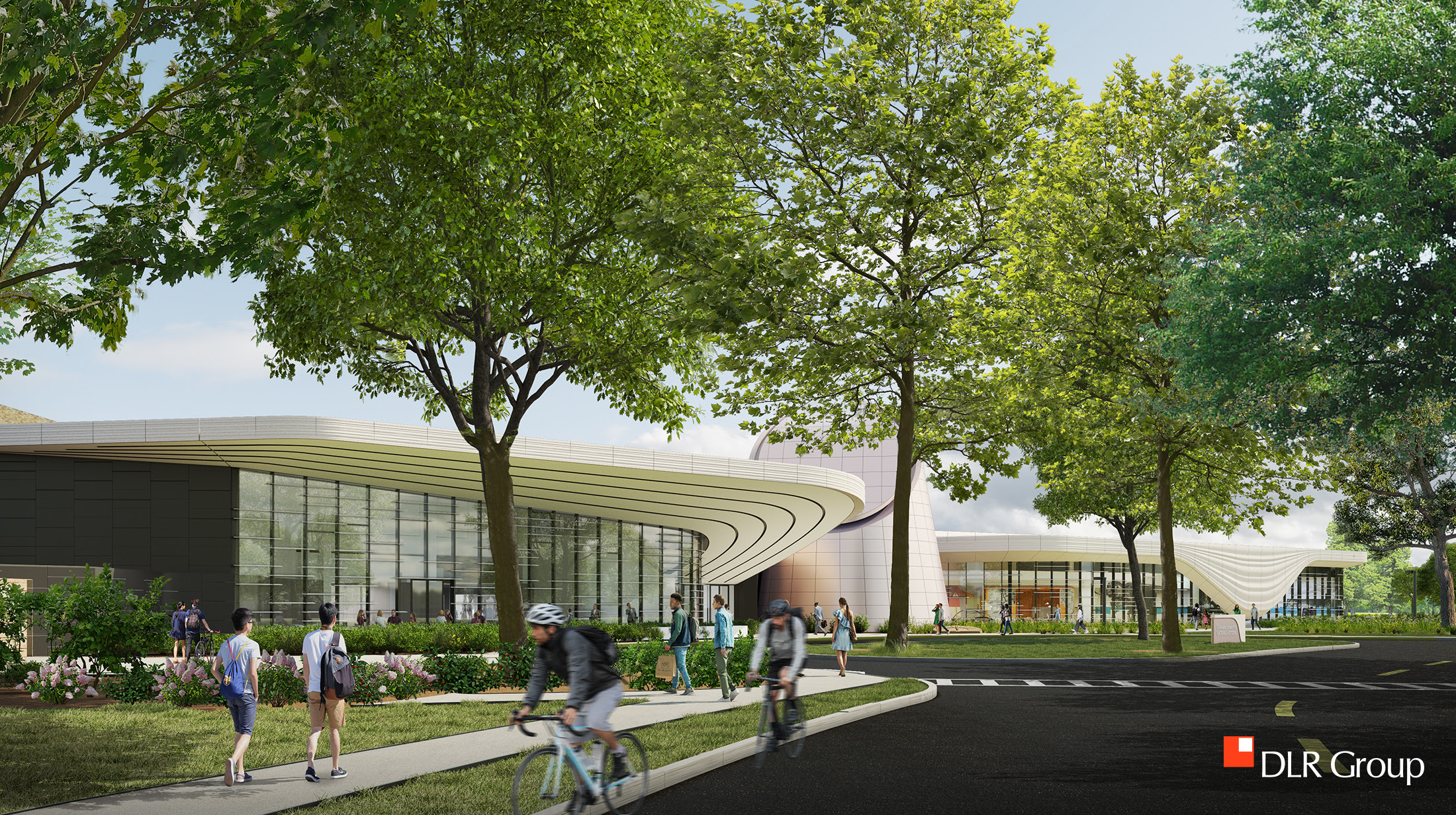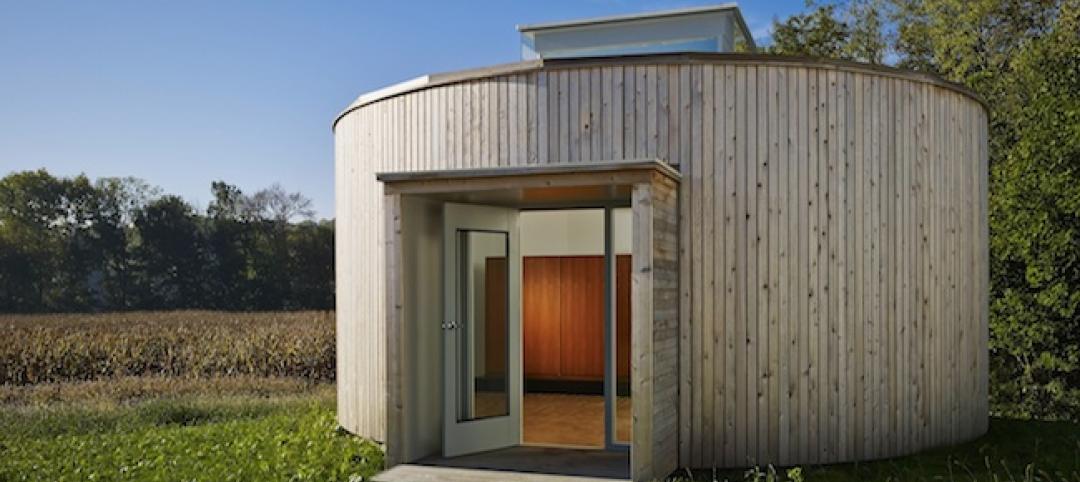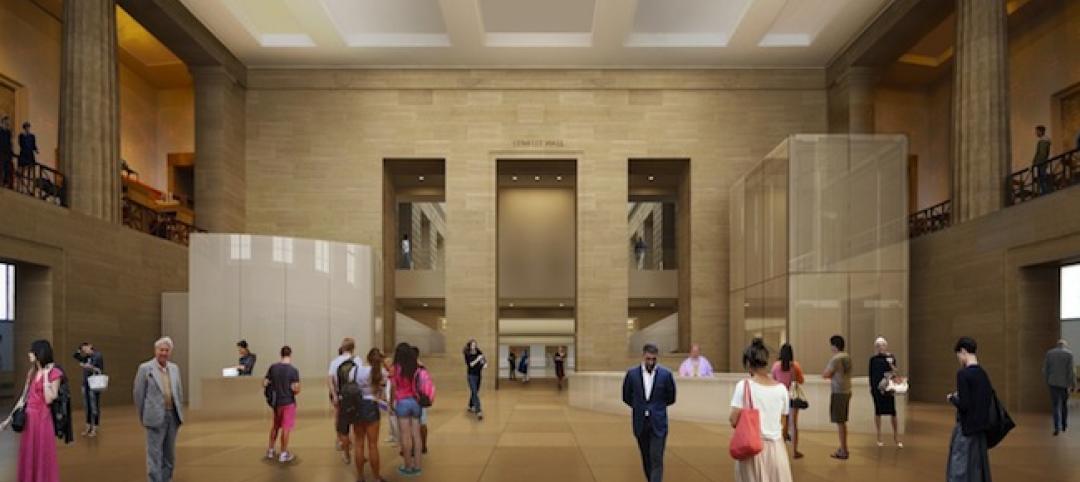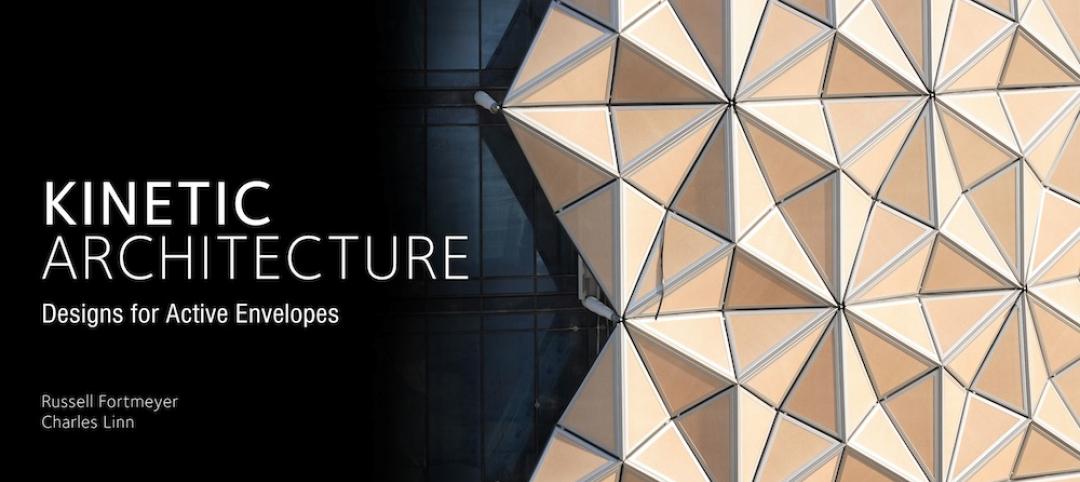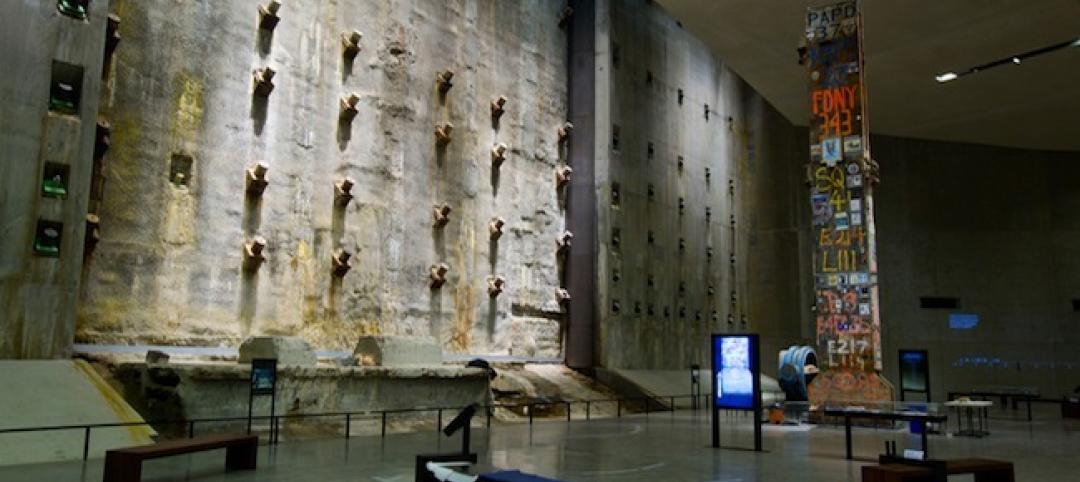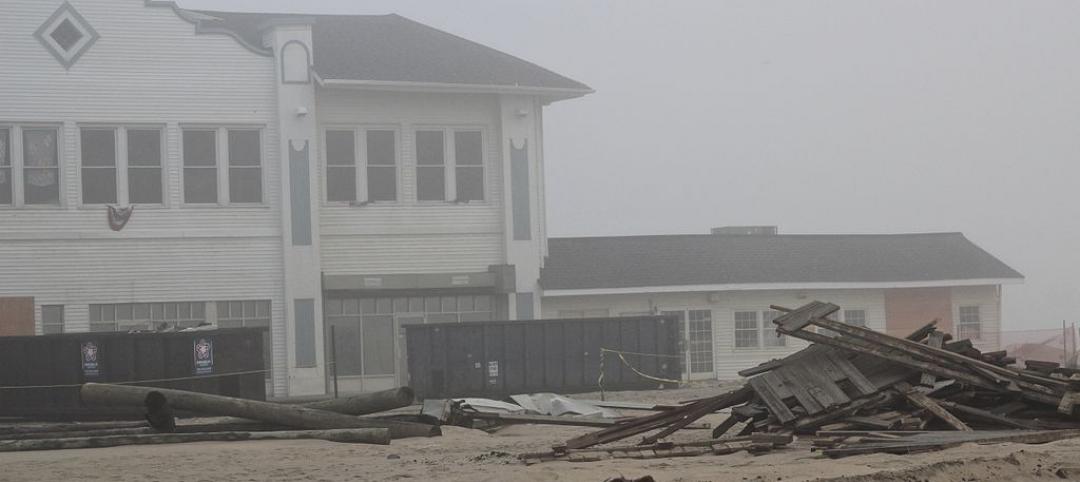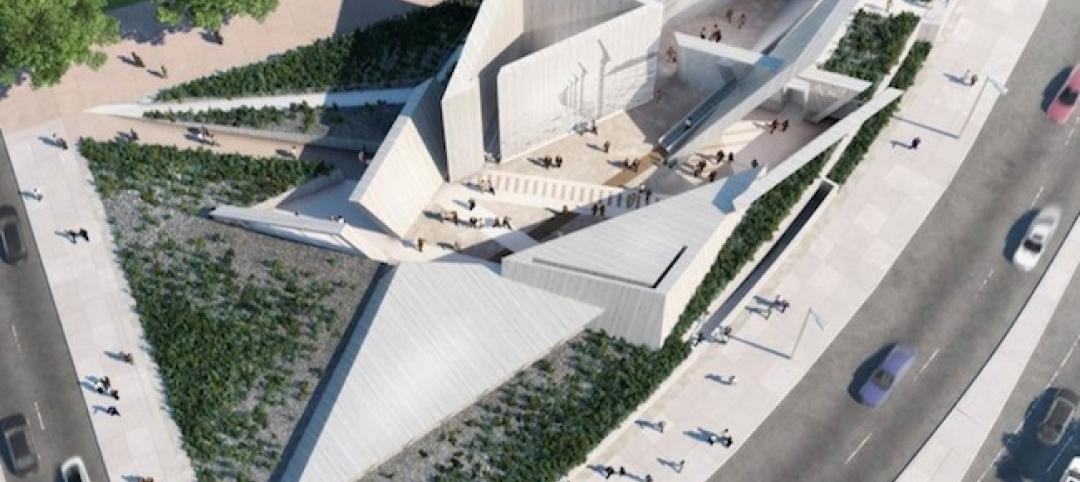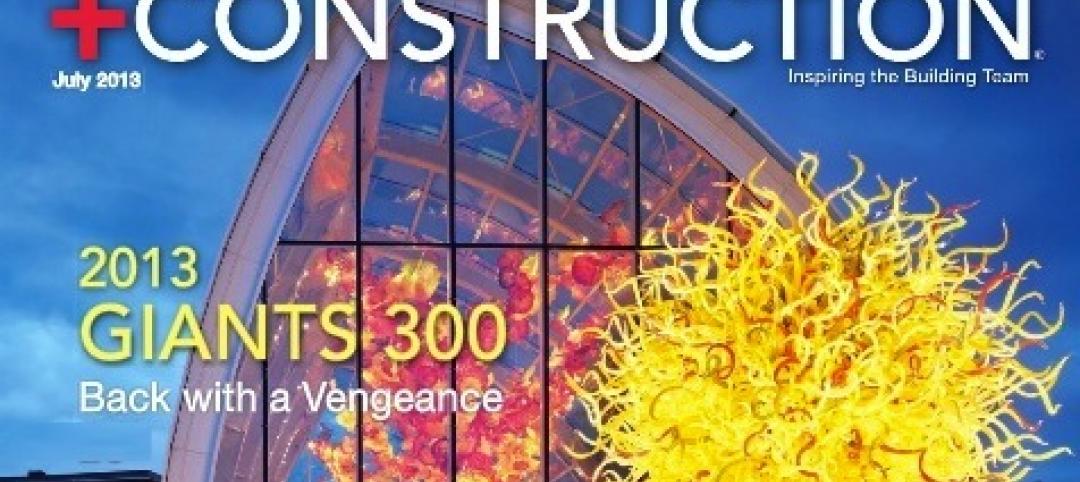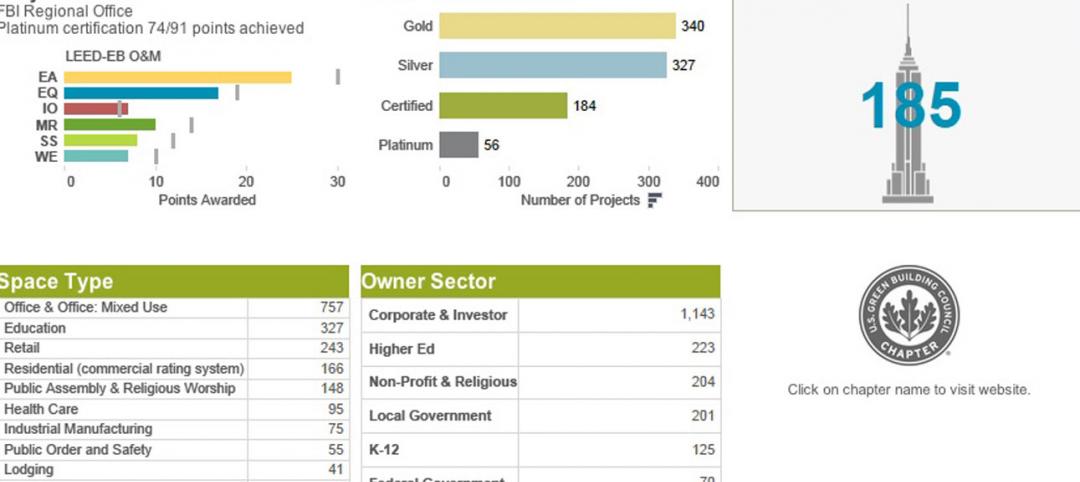Last December, the 100-year-old Cleveland Museum of Natural History completed an $8.9 million overhaul of its Thelma and Kent H. Smith Environmental Courtyard and the upgrade of its 450-seat Murch Auditorium. The courtyard was one of several “gateway” projects that have been interim stages of a $150 million expansion and renovation of the Museum, whose new 50,000-sf Exhibit Hall, main lobby, and café are scheduled to break ground this Thursday.
Sonia Winner, the Museum’s President and CEO, told the Cleveland Plain Dealer that the institution was also planning an $11.4 million upgrade of its central utility plant.
Since 1958, when the Museum moved to its current location, it has expanded at least six times. The latest expansion, designed by DLR Group, will feature a curving, snow-white roof made from cast-concrete panels and intended to evoke the glacier that covered Northeast Ohio during the last ice age. (Panzica Construction is the GC on this project.)
The museum’s latest expansion and renovation will create new exhibits, developed by Gallagher & Associates, and add curatorial posts for the purposes of connecting, in new ways, the Museum’s collections and research with public education and programming.
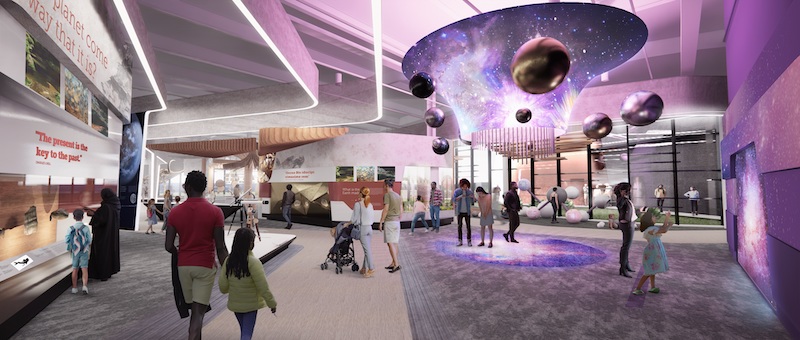
A rendering of the Museum's Planetary Process Gallery. The Museum's exhibit reorganization will attempt to connect humanity to the larger universe. Image: Gallagher & Associates
RETELLING HISTORY’S MARCH
The museum, which pre-pandemic was drawing 260,000 visitors annually, holds more than five million artifacts and specimens, and, through its Natural Areas program, stewards more than 11,000 acres of nature preserve in Northeast Ohio. Massive new exterior glass walls will wrap around the addition’s façade to open sightlines between the exhibits and the surrounding landscape of Wade Oval.
Inside, the traditional museum organization—by time period, geography, and species—is being deconstructed to tell integrated stories of planetary and biological processes.
The goal of this “reinvention” is to show more clearly how humanity intersects with the continuum of life on Earth and universal forces.
“We are creating a new model for natural history museums that uses the past to inform our present to build a better future together,” explains Winner. “Our reimagined museum will illuminate the interconnectedness of human life and the natural world, and how science is essential to our lives.”
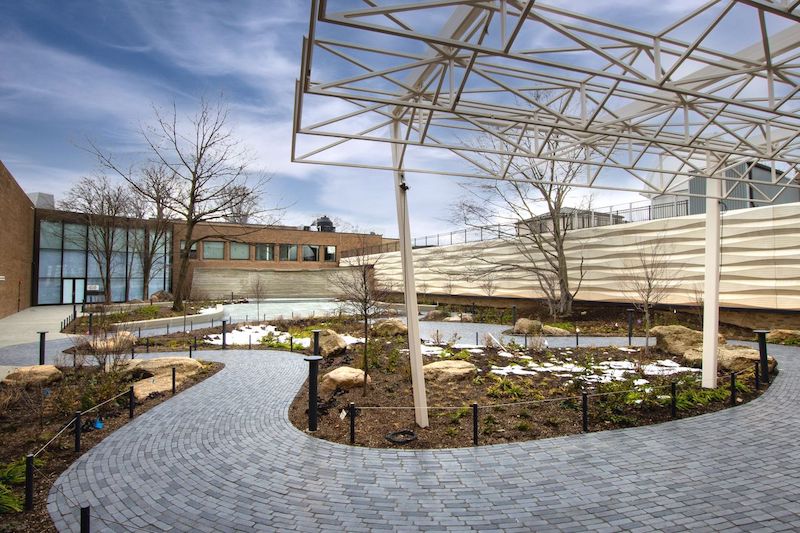
An “environmental courtyard,” which received an $8.9 million makeover, now serves as one of the Museum's gateways. Image: Cleveland Museum of Natural History
EVOLUTION ON DISPLAY
The museum addition (parts of which are scheduled to open next year) is being constructed on what currently is a parking lot, and will include a central welcome and orientation area, another gateway. The new Visitors Hall will feature a reconstruction of “Lucy,” the 3.2-million-year-old human ancestor that a team of Cleveland museum scientists first discovered 45 years ago, as well as a geological sample collected from the Moon, and specimens of modern-day animals to illustrate evolutionary and biological changes.
A new self-guided interactive space, The Ames Family Curiosity Center, is meant to connect the museum’s collections with its visitors’ lived experiences and global science-related news.
The addition and renovation should be completed sometime in 2024.
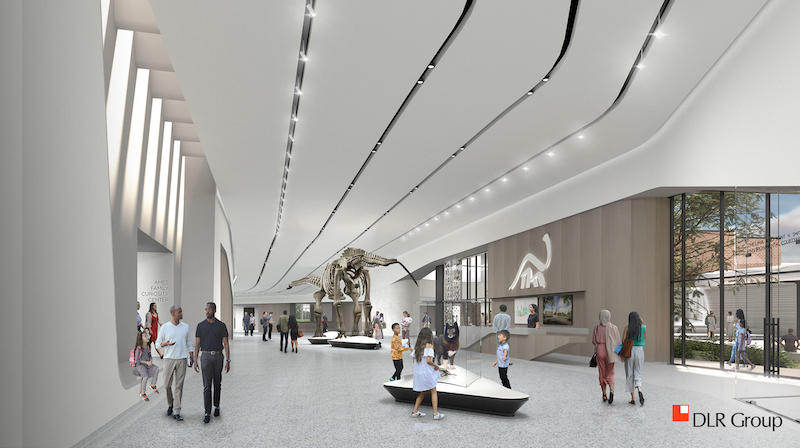
Each of the Museum's exhibitions will be part of a larger evolutionary story. Image: DLR Group
Related Stories
| May 23, 2014
Big design, small package: AIA Chicago names 2014 Small Project Awards winners
Winning projects include an events center for Mies van der Rohe's landmark Farnsworth House and a new boathouse along the Chicago river.
| May 22, 2014
IKEA to convert original store into company museum
Due to open next year, the museum is expected to attract 200,000 people annually to rural Älmhult, Sweden, home of the first ever IKEA store.
| May 21, 2014
Gehry unveils plan for renovation, expansion of Philadelphia Museum of Art [slideshow]
Gehry's final design reorganizes and expands the building, adding more than 169,000 sf of space, much of it below the iconic structure.
| May 20, 2014
Kinetic Architecture: New book explores innovations in active façades
The book, co-authored by Arup's Russell Fortmeyer, illustrates the various ways architects, consultants, and engineers approach energy and comfort by manipulating air, water, and light through the layers of passive and active building envelope systems.
| May 19, 2014
What can architects learn from nature’s 3.8 billion years of experience?
In a new report, HOK and Biomimicry 3.8 partnered to study how lessons from the temperate broadleaf forest biome, which houses many of the world’s largest population centers, can inform the design of the built environment.
| May 15, 2014
First look: 9/11 Memorial Museum opens to first-responders, survivors, 9/11 families [slideshow]
The 110,000-sf museum is filled with monumental artifacts from the tragedy and exhibits that honor the lives of every victim of the 2001 and 1993 attacks.
| May 13, 2014
19 industry groups team to promote resilient planning and building materials
The industry associations, with more than 700,000 members generating almost $1 trillion in GDP, have issued a joint statement on resilience, pushing design and building solutions for disaster mitigation.
| May 13, 2014
Libeskind wins competition to design Canadian National Holocaust Monument
A design team featuring Daniel Libeskind and Gail Dexter-Lord has won a competition with its design for the Canadian National Holocaust Monument in Toronto. The monument is set to open in the autumn of 2015.
| May 11, 2014
Final call for entries: 2014 Giants 300 survey
BD+C's 2014 Giants 300 survey forms are due Wednesday, May 21. Survey results will be published in our July 2014 issue. The annual Giants 300 Report ranks the top AEC firms in commercial construction, by revenue.
| Apr 29, 2014
USGBC launches real-time green building data dashboard
The online data visualization resource highlights green building data for each state and Washington, D.C.


